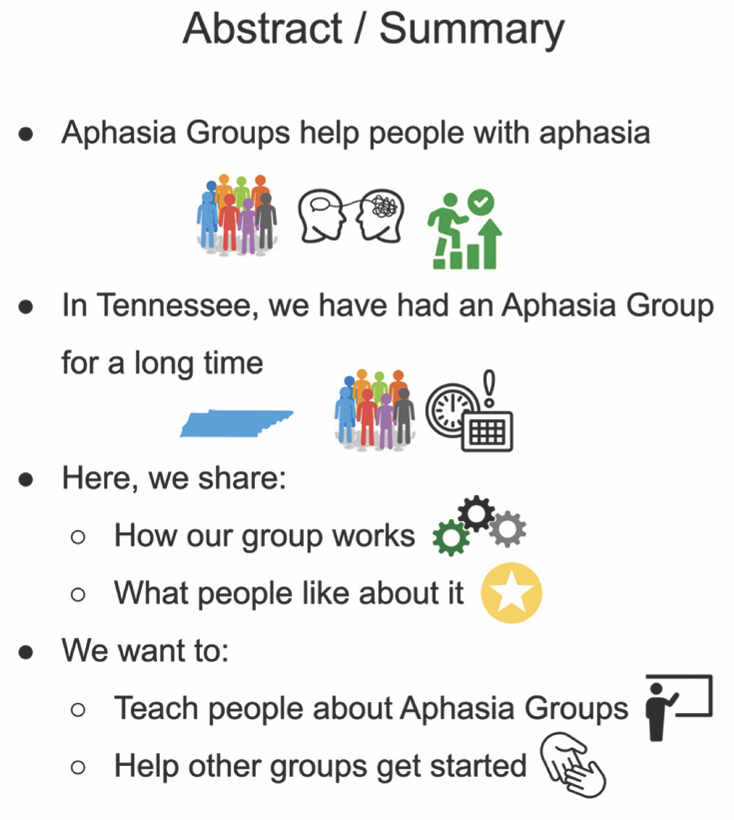For nearly two million Americans living with aphasia, participating in research about their condition is common, but accessing the resulting findings often isn’t.
Despite their crucial involvement, most scientific articles remain inaccessible, with merely a handful designed for their comprehension. This is a stark reality: out of more than 21,000 papers, only about five are written with aphasia-friendly language.
Why Accessibility in Research Matters
Aphasia, frequently caused by stroke, disrupts communication but not intellect. While guidelines exist for making materials aphasia-friendly, adapting dense scientific language into clear, approachable summaries is time-consuming and typically overlooked. Researchers are motivated to improve accessibility but often lack efficient tools.

An Aphasia-friendly version of research abstract.
Article Friend: Bringing AI to the Accessibility Challenge
This is where Article Friend enters the scene. Developed with support from a Princeton AI Lab Seed Grant, this innovative tool employs artificial intelligence to convert research abstracts into aphasia-friendly formats.
By harnessing GPT-4o and integrating Google Docs and The Noun Project APIs, Article Friend simplifies technical language, emphasizes key information, and adds visual aids.
- Simplified Text: Converts complex research into clear, concise summaries.
- Visual Reinforcement: Integrates icons and highlights keywords for easier understanding.
- Quick Turnaround: Enables researchers to create accessible content rapidly, opening research to wider audiences.
Community Response and Real-World Impact
The prototype made a strong impression at the Aphasia Access Leadership Summit, drawing positive reactions from speech-language pathologists, researchers, and people with aphasia.
The tool’s demonstrations underlined the urgent need for accessible research and illustrated how technology can bridge the divide between discovery and those directly impacted.
Challenges and Ongoing Innovations
While Article Friend shows promise, development continues. Ensuring that visual icons accurately support the text, avoiding oversimplification, and managing longer articles all present current hurdles.
At this stage, Article Friend primarily focuses on summarizing scientific abstracts due to these technical constraints.
The team also remains vigilant about the risks inherent to AI, such as producing misleading information ("hallucinations"). They emphasize that Article Friend is a tool for researchers with subject expertise, not a replacement for human judgment.
The aim is to empower experts to create accessible, accurate research summaries.
The Future of Inclusive Science
Article Friend marks a pivotal move toward democratizing scientific knowledge for individuals with communication challenges.
By making research more accessible, it gives people with aphasia the opportunity to engage with studies that directly affect their lives. Ongoing development will expand the tool’s capabilities while reinforcing the importance of human oversight in reviewing AI-generated summaries.
Final Thoughts
AI is proving itself a valuable ally in the quest for research inclusivity. With tools like Article Friend, the future holds promise for a world where everyone, regardless of communication ability, can benefit from scientific progress, provided that the human element remains central in the process.
Source: Princeton Laboratory for Artificial Intelligence Research Blog

AI Tools Like Article Friend Are Making Scientific Research More Accessible to People with Aphasia